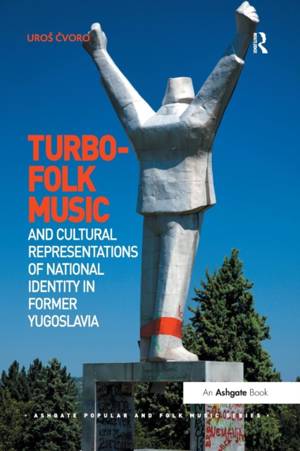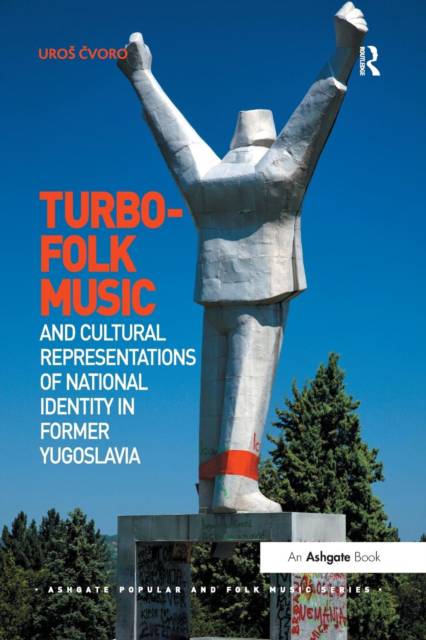
- Afhalen na 1 uur in een winkel met voorraad
- Gratis thuislevering in België vanaf € 30
- Ruim aanbod met 7 miljoen producten
- Afhalen na 1 uur in een winkel met voorraad
- Gratis thuislevering in België vanaf € 30
- Ruim aanbod met 7 miljoen producten
Zoeken
Turbo-folk Music and Cultural Representations of National Identity in Former Yugoslavia
Uros Čvoro
€ 102,45
+ 204 punten
Uitvoering
Omschrijving
Turbo-folk music is the most controversial form of popular culture in the new states of former Yugoslavia. Theoretically ambitious and innovative, this book is a new account of popular music that has been at the centre of national, political and cultural debates for over two decades. Beginning with 1970s Socialist Yugoslavia, Uros Čvoro explores the cultural and political paradoxes of turbo-folk: described as 'backward' music, whose misogynist and Serb nationalist iconography represents a threat to cosmopolitanism, turbo-folk's iconography is also perceived as a 'genuinely Balkan' form of resistance to the threat of neo-liberalism. Taking as its starting point turbo-folk's popularity across national borders, Čvoro analyses key songs and performers in Serbia, Slovenia and Croatia. The book also examines the effects of turbo on the broader cultural sphere - including art, film, sculpture and architecture - twenty years after its inception and popularization. What is proposed is a new way of reading the relationship of contemporary popular music to processes of cultural, political and social change - and a new understanding of how fundamental turbo-folk is to the recent history of former Yugoslavia and its successor states.
Specificaties
Betrokkenen
- Auteur(s):
- Uitgeverij:
Inhoud
- Aantal bladzijden:
- 224
- Taal:
- Engels
- Reeks:
Eigenschappen
- Productcode (EAN):
- 9781138249059
- Verschijningsdatum:
- 19/10/2016
- Uitvoering:
- Paperback
- Formaat:
- Trade paperback (VS)
- Afmetingen:
- 156 mm x 234 mm
- Gewicht:
- 322 g

Alleen bij Standaard Boekhandel
+ 204 punten op je klantenkaart van Standaard Boekhandel
Beoordelingen
We publiceren alleen reviews die voldoen aan de voorwaarden voor reviews. Bekijk onze voorwaarden voor reviews.











